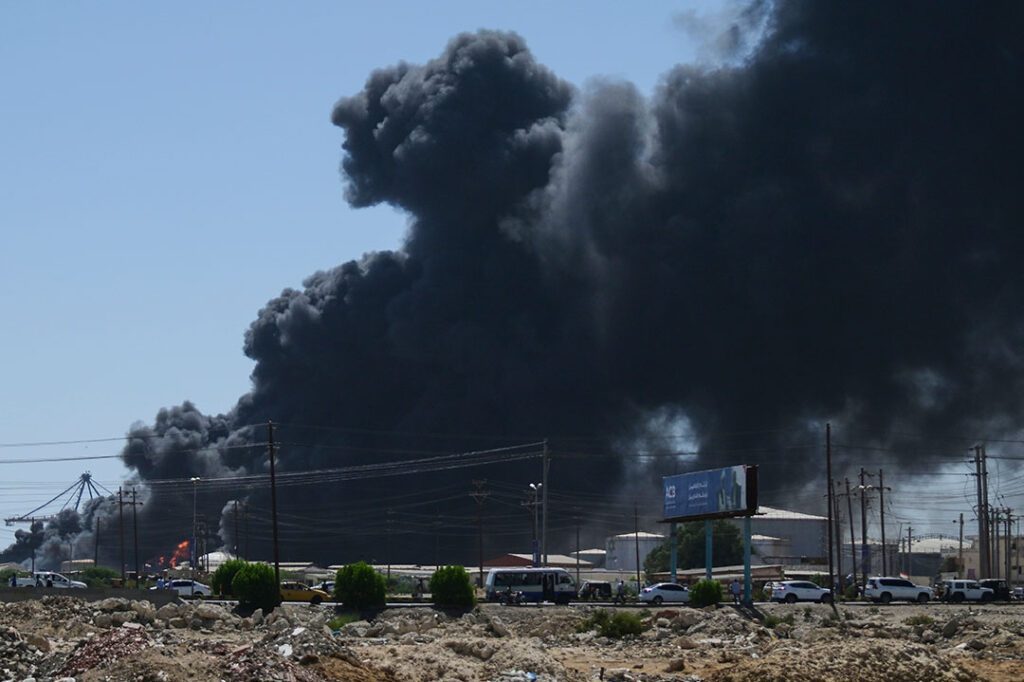Sudan’s devastating civil war intensified over the first half of 2025 as civilians continued to bear the brunt of the violence amid an out-of-control humanitarian crisis.
Both the paramilitary Rapid Support Forces (RSF), led by Gen. Mohamed Hamdan “Hemedti” Dagalo, and the Sudanese Armed Forces (SAF), led by Gen. Abdel Fattah al-Burhan, are accountable for a significant rise in civilian killings, according to a new report by the United Nations Human Rights Office.
Between January 1 and June 30, 3,384 civilians died in the conflict, mostly in Darfur, followed by Kordofan and Khartoum. That number represents almost 80% of the 4,238 civilian casualties recorded last year.
“Several trends remained consistent during the first half of 2025: a continued pervasiveness of sexual violence, indiscriminate attacks, and the widespread use of retaliatory violence against civilians, particularly on an ethnic basis, targeting individuals accused of ‘collaboration’ with opposing parties,” the report said.
Emerging trends included the use of drones, including in attacks on civilian sites, and military assaults in the north and east of the country, areas that had previously been largely spared from violence. Attacks on internal displacement camps were common. Authorities accused military, paramilitary and militia forces of killing people based on their ethnicity.
“The increasing ethnicization of the conflict, which builds on longstanding discrimination and inequalities, poses grave risks for longer-term stability and social cohesion within the country,” Volker Turk, the U.N.’s human rights chief, said in a statement. “Many more lives will be lost without urgent action to protect civilians and without the rapid and unhindered delivery of humanitarian aid.”
Officials accused the SAF on March 24 of killing up to an estimated 270 people during airstrikes on a bustling market in Tora, about 35 kilometers north of El-Fasher, the capital of North Darfur State. The Darfur Initiative for Justice and Peace called it the “deadliest single bombing since the beginning of the war.”
Mohamed Chande Othman, chair of the U.N.’s Fact-Finding Mission on Sudan, said girls as young as 12 have been forced into marriage, sometimes after their families were threatened with death.
“Men and boys were also subjected to sexualized torture and such acts are rooted in racism, prejudice and impunity and they devastate entire communities,” Othman said.
Deadly Hospital, Mosque Attacks
In January, officials accused the RSF of a hospital attack in El-Fasher that killed 70 people and injured 19.
“At the time of the attack, the hospital was packed with patients receiving care,” Tedros Adhanom Ghebreyesus, the World Health Organization’s director-general, said in a post on X.
According to Othman, dozens of detainees in an RSF facility have died since June after being tortured, denied food and medical care.
In SAF-run detention facilities, “civilians were also subjected to torture, including electric shock, sexualized abuse, and they were held in cells so overcrowded that some prisoners had to sleep standing,” Othman said.
On September 19, the RSF killed 75 people in a drone strike that hit a mosque at a camp for displaced people in Darfur. This was part of an offensive aimed to force the SAF out of El-Fasher, which is the last remaining capital in the region controlled by the SAF, according to The Guardian. Yale University’s Humanitarian Research Lab showed the RSF is building an earthen wall around the city to trap people inside. Attacks in El-Fasher killed at least 89 civilians over 10 days in August.
Dire Humanitarian Crisis
Some estimates place the war’s death toll as high as 150,000 since it erupted in April 2023.
“We can’t responsibly give a number,” Nathaniel Raymond, executive director of Yale’s Humanitarian Research Lab, told Science.org. “Many who would do the counting are dead or displaced.”
According to the U.N’s International Organization for Migration, 14.3 million people — about Rwanda’s total population — have fled their homes due to the violence. About 24.6 million people faced food insecurity between December 2024 and May, while at least 638,000 people are on the brink of famine. Disease outbreaks, including cholera, dengue fever, malaria and measles are rising due to disrupted health services. More than 90% of Sudan’s 19 million school-aged children have no access to formal education, according to the U.N. Children’s Fund.
The SAF now largely controls the country’s eastern, central and northern territories, while the RSF dominates parts of the south and nearly all of the western Darfur region. Efforts to broker a ceasefire have failed.

